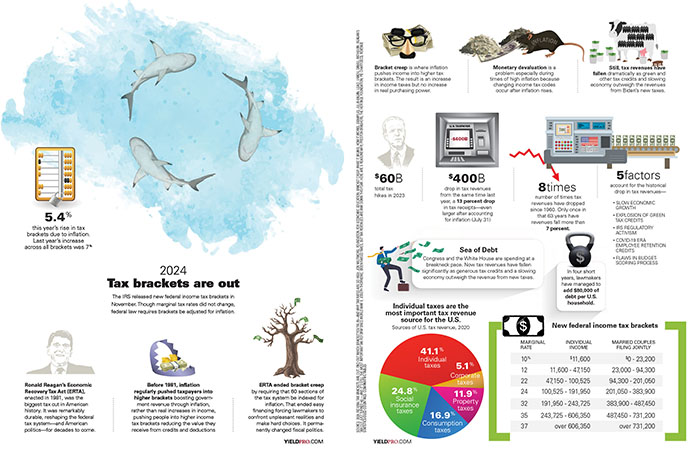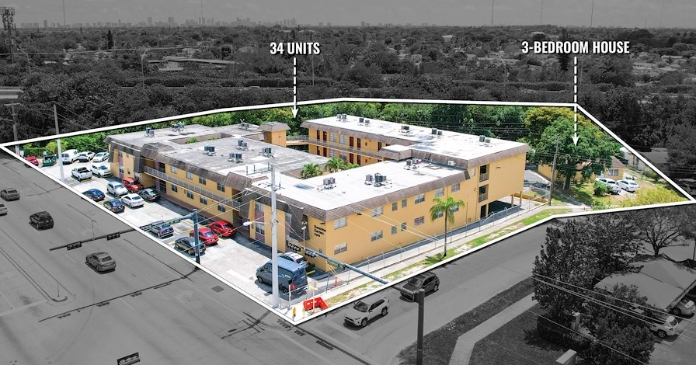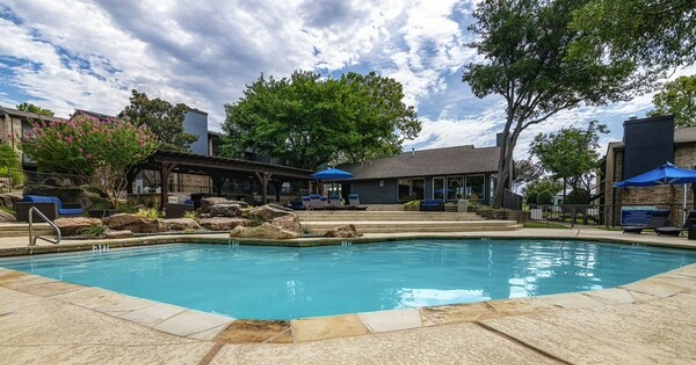According to Real Capital Analytics, repositioning plays accounted for more than eight percent of all transactions nationally last year.
Half-vacant assets, deferred maintenance and a challenging tenant base are the stuff value-added plays are made of. Companies that reposition assets with those issues make it their business to know just how much value improved curb appeal, kitchen and bath upgrades and even a good paint job can add to a well-located apartment community in need of a little love.
Rather than buy, hold and wait for appreciation, value-added players acquire under performing but well-located Class B, C and even D assets at prices below replacement cost, add value and sell for a profit to investors looking for stabilized properties. The typical hold period for this strategy is three to five years. Those who invest in mismanaged, poorly maintained and under performing assets today include private funds, wealthy individuals, tenant-in-common (TIC) groups, institutional investors and REITs.
Some pundits think lower returns and fears of a faltering economy might scare off a number of those value-added investors. According to “Emerging Trends in Real Estate 2007,” published jointly by PricewaterhouseCoopers and the Urban Land Institute in October 2006, 1031 TIC investors will be the most likely to be spooked by headlines declaring declines in single-family home prices. Based on survey responses, the report predicts the appetites of these investors might wane similar to the buying trend of condo converters, which began to lose momentum in March of last year as that market started to collapse.
But recent value-added transactions prove that investor capital still hungers for repositioning plays. Here’s why. Many first-time home buyers lately have been locked out of the market by price increases over the past several years and slowly rising interest rates. According to Marcus & Millichap, the disparity that exists between the average rent and typical mortgage payment is at its widest point in 25 years. More people are renting with less product to rent, thanks to the condo conversion boom that took a large number of units out of the rental pool. Affordable apartments are looking good to a relatively stable pool of renters and demand in the Class B and C apartment sector is expected to be especially strong this year, with vacancies forecast to fall below five percent by year-end.
Stan Douglas, vice president of acquisitions for RCMG Real Estate Advisors, a value-added investor targeting markets in the Southeast and into the Carolinas, finds he’s still up against a half a dozen repositioning players at the bidding table for each deal he goes after. “It’s harder to locate value-added investments than it is to round up investors,” he said.
Jeff Elowe, president and founder of the Laramar Group, is seeing plenty of private money chasing properties for repositioning and has identified a number of ways to create value. Elowe founded his company in 1989 as Elkor Realty and changed the name to Laramar Group in 2001. The Chicago-based firm owns about 18,000 units nationwide.
Elowe’s team is looking for repositioning opportunities in its hometown, up and down the East Coast, in Minneapolis and in Denver, where the company has a regional office. The company also plans to capitalize on the conversion reversion trend (planned condos and condo conversions reverting back to rental), especially in Florida. Laramar recently opened an office in Boca Raton.
In mid-December, Laramar closed its first equity fund, the $350 million Laramar Multi-Family Value Fund, and snapped up four initial assets for its investors — a melange of institutions and high-net- worth individuals. The company previously raised money separately for each transaction. The fund that targets under performing assets nationwide, but mostly in coastal markets, has the capacity to acquire $1.4 billion in assets on a leveraged basis.
The initial acquisitions include the severely under-managed 198-unit Manchester Oaks in Palatine, a northwestern suburb of Chicago. The company paid $15.5 million, or $78,282/unit, for the 37-year-old property and began renovations immediately, offering current residents relocation within the building at their current rent while updating kitchens and baths in the empty units. The community that had been plagued by crime issues was 60 percent occupied at COE with rents 20 percent below market average. Elowe is spending around $20,000/unit on renovations, adding a clubhouse, a movie theater, fitness center and an Internet cafe, as well as upgrading the building exterior with pitched roofs, landscaping and signage. The fund also acquired the 302-unit Parkway Towers, a mid-rise in Harwood Heights, Ill., from an affiliate of locally-based Inland Group, Inc, for $23.7 million, or $78,476/unit, and is spending between $10,000/ unit and $15,000/unit on upgrades. The property was 90 percent occupied at close, compared with an average market occupancy of 97 percent.
The fund’s other acquisitions include the 492-unit Promenade at Berkeley, formerly Northwoods Lake, in Duluth, Ga., which the company bought from America First, and the 436-unit Park Baldwin Hills in Orlando. Laramar has earmarked $13,000/unit to refurbish pools, tennis courts, exterior paint, and to upgrade interiors and the clubhouse. Park Baldwin Palms, which as the former Semoran Palms was managed by EPT Management, is undergoing an extreme makeover.
Setting value-added milestones
CORE Realty Holdings, Inc., of Newport Beach, Calif., still is very much in the repositioning game and expects this month to finalize a joint venture with another firm that will target value-added assets nationwide. CORE owns and manages more than four million square feet of urban commercial and multifamily assets for itself and its clients, and is a realty advisor for TIC investors.
As 2006 came to an end, CORE closed on a 2,399-unit portfolio of assets in Greensboro, N.C., and Richmond, Va., that Chief Investment Officer Sterling McGregor calls a milestone in terms of size. “It’s the largest 1031 tenant-in-common transaction for a value-added portfolio in history,” he said. The seller was a partnership of Real Estate Partners and the Bethany Group, the latter of which has retained management of the communities.
CORE paid $166 million for the portfolio on behalf of 208 investors in eight separate transactions, with the price to the investors being $189 million. “The deal was proportioned as one-offs, because that’s how TIC deals are done,” said McGregor. “With as many as 33 investors in each property, the paperwork on each asset closing can be overwhelming. We closed in two tranches. No third-party brokers were involved and we locked in financing for our investors at a 5.33 percent interest rate for 10 years when Treasury yields were low.”
Although the portfolio is well-stabilized at 98 percent occupancy, it’s a value-added play because the previous owners were unable to execute their business plan after their lender cut back on their financing, McGregor said. The sellers bought the portfolio from Equity Residential in December 2003 and sold to CORE several years before the end of their target hold period. McGregor explained that, without the capital to rehab, the portfolio just sat there stagnant in terms of rent growth. Meanwhile, the market was improving.
“The Greensboro assets in particular are demonstrating positive operating performance,” said McGregor. “We bought these assets at a price below replacement cost and have the necessary capital reserves to make the improvements needed to increase rents.”
Greensboro’s entire freeway system is being upgraded and a new urban loop is being constructed that will surround the city and feed into several interconnecting intestate freeway systems that will enhance access to Piedmont Triad International Airport (PTIA). “By luck, our properties are tangentially located next to all the freeway ramps that are under construction,” said McGregor, who jokingly calls the transaction his “Christmas miracle.”
Area expansion plans also include construction of a Federal Express Mid-Atlantic hub that is expected to generate 16,000 jobs over the next 20 years. Already underway is a one-million-square-foot facility that will be operational by 2008 and includes a new runway for cargo flights. Other employers adding space in the area include Dell, Inc., which just completed a 750,000 square foot manufacturing plant within two miles of I-40. This growth is attracting other logistics, packaging and automation firms to the region.
The Richmond communities are located in the highly desirable Far West End sub-market, minutes from the I-64 with easy access to I-95, the main north-south Mid-Atlantic arterial. The $46.8 million terminal expansion at Richmond International Airport, which will be completed in spring, will be a boon to the assets.
“We’ve already seen rent growth. We underwrote the portfolio at an eight percent vacancy and a four percent market concession. Today, occupancy is at 98 percent with zero concessions. We’re hitting year- eight numbers in year one,” said McGregor.
When it went under contract, rents across the portfolio’s ones, twos and threes averaged from $500 to between $700 and $800. “They’ve since moved up two percent. There’s really no major deferred maintenance and we like the size of the units, which average around 1,000 square feet,” said McGregor. But he believes capital improvements will contribute significantly to resident retention and, using a combination of voluntary lender holdbacks, more than $1 million of seller credits, capital raised by CORE and ongoing cash sweeps out of cash flow to improve the assets, McGregor expects to push rents beyond the natural rent growth expected as a result of the infrastructure improvement and expected job creation in the area. He plans to invest an average of $3,500/unit on upgrades and bump rents by another three to five percent.
Renovations include exterior paint, parking lot slurry seals and common area upgrades, as well as interior upgrades as units turn. As property manager, The Bethany Group will oversee the improvement program, which should be completed in March.















